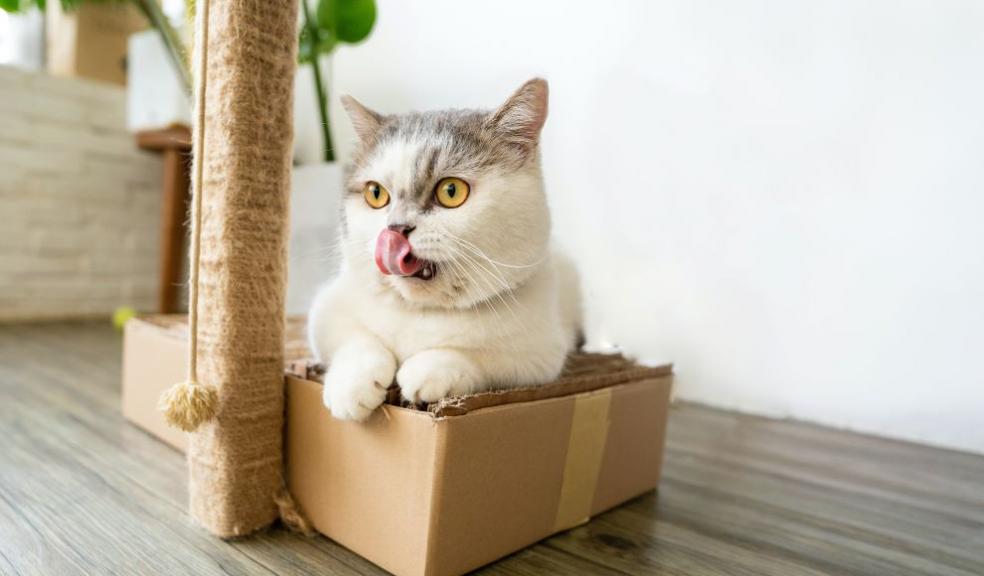
8 of the most common mistakes cat owners make (and how to solve them)
Cats have earned a reputation for their independence, yet bringing home a new feline friend is a major decision which still requires a great deal of time, effort and money.
So, before you bring home an adorable kitten (no matter how tempting the thought is), Eleonore Hacheme, Cat Nutritionist at Republic of Cats solves eight mistakes most commonly made by new cat owners.
Mistake 1: Failing to do your homework before bringing home your new cat
"When you're considering adding a new cat to the family, it's so important to do your homework to ensure you and your new cat are the perfect fit for each other.
"Even if you think you've read every article online, asking questions via online forums which have been set up for specific breeds can be incredibly helpful. For example, you can ask very detailed questions to make sure they are the right fit for you (eg: long hair vs short hair vs no hair, what's their temperament like etc) that you might not find the answers to on more general advice articles.
"If you're adopting from a shelter or rescue home, make sure to ask plenty of questions to gather as much information as you can about the unique personality and history of your new cat, as they could have been through past experiences that mean you or your home won't necessarily match their needs.'
Mistake 2: Not understanding the commitment involved with owning a cat
"Everyone knows that having children is expensive and a life-long commitment, but with so many domestic cats now living for as long as 20 years+, so is adopting a new feline friend.
"Shelters and rescue homes will assess potential adopters to ensure that you and your cat are a good match, as well as having the financial resources to keep everyone healthy and happy."
Mistake 3: Not spaying or neutering
"Spaying or neutering can help prevent issues such as aggression in male cats or 'yelling' in female cats when they are in heat. For female cats, it will eliminate the risk of ending up with a litter of unwanted kittens, plus dangerous health conditions such as cancerous tumors or infections.
"If you adopt from a shelter, your new pet will most likely have been spayed/neutered already, or if you are adopting a kitten, they will help you with the cost of this later down the line".
Mistake 4: Forgetting to clean out the litter tray
"Keeping your cat's litter tray clean and tidy can feel like a never ending task, especially if you make the decision to keep them as a house pet, but it's important as it keeps them in a good routine.
"Keep the tray as clean as you can and always choose an unscented litter to avoid any irritation of sensitive areas.
"Your cat's litter tray habits can also alert you to potential health issues, such as runny stools or even urinating outside of the box. This could be a clue that they need to visit the vet for an examination".
Mistake 5: Rushing to introduce your cat to your other pets
"If you have other pets in your household, it might be tempting to rush to introduce everyone straight away. Be patient and go slowly as rushing the introductions at this stage could harm relationships you're trying to build.
"It's worth keeping pets in separate rooms until initial introductions are complete, and during this time you can introduce smells such as swapping bedding and toys to help everyone get used to each other.
"Encourage these interactions to have positive associations with treats and toys as this will encourage a harmonious environment for everyone involved".
Mistake 6: Not understanding basic cat behaviour and signals
"Your cat uses their behaviour to let you know how they are feeling, but the signals can often be mixed and can leave you wondering if your cat is happy.
"At first, your cat might seem hard to read, but there are plenty of tell-tale signs that can help you understand what mood they might be in. Cats have a wide range of emotions, and the key to a good human-feline relationship is learning how to recognise these emotions and respond appropriately.
"For example, a happy cat will have relaxed whiskers and a still tail. If you stroke your cat they might even close their eyes and gently purr in contentment.
"An anxious cat might pull their whiskers back, curl their back and cower away from you. If you spot this, it's worth offering some reassurance with a calm voice and slow movements".
Mistake 7: Thinking it's normal for your cat to vomit
"Although it's not pleasant, vomiting is something cats seem to do often and whilst many cat owners accept this as part of owning their pet, it doesn't have to be this way.
"Knowing and understanding what triggers your cat to have an upset stomach will help you avoid this messy situation.
"Many owners think hairballs are the culprit, but that's not always the case, sometimes it can be from eating too fast.
"When a cat eats their food too fast, the stomach wall expands too much and too fast which signals the brain to regurgitate what they have just eaten - rather than vomit which involves retching and gagging. It is vital that owners know the difference.
"If you are worried about your cat vomiting, then speak to your vet who will be able to advise on your specific situation".
Mistake 8: Not paying attention to dental hygiene and teeth brushing
Dental disease is a big problem for cats and vets see the consequences in their surgerys most days. And it's not just an issue that presents itself in older cats - dental issues can start as early as age three.
"Your cat can't brush their teeth, so food can remain caught between their teeth long after they have finished their meals. Like humans, this can form plaque and become difficult to remove.
"Daily brushing is one way to keep your cat's teeth healthy, but it can be tricky to do unless you've done it from a young age. Use a small brush along with calm and gentle movements (and make sure to give them plenty of attention afterwards).
"Your vet will check their teeth, so make sure you keep on top of your check-up appointments".







